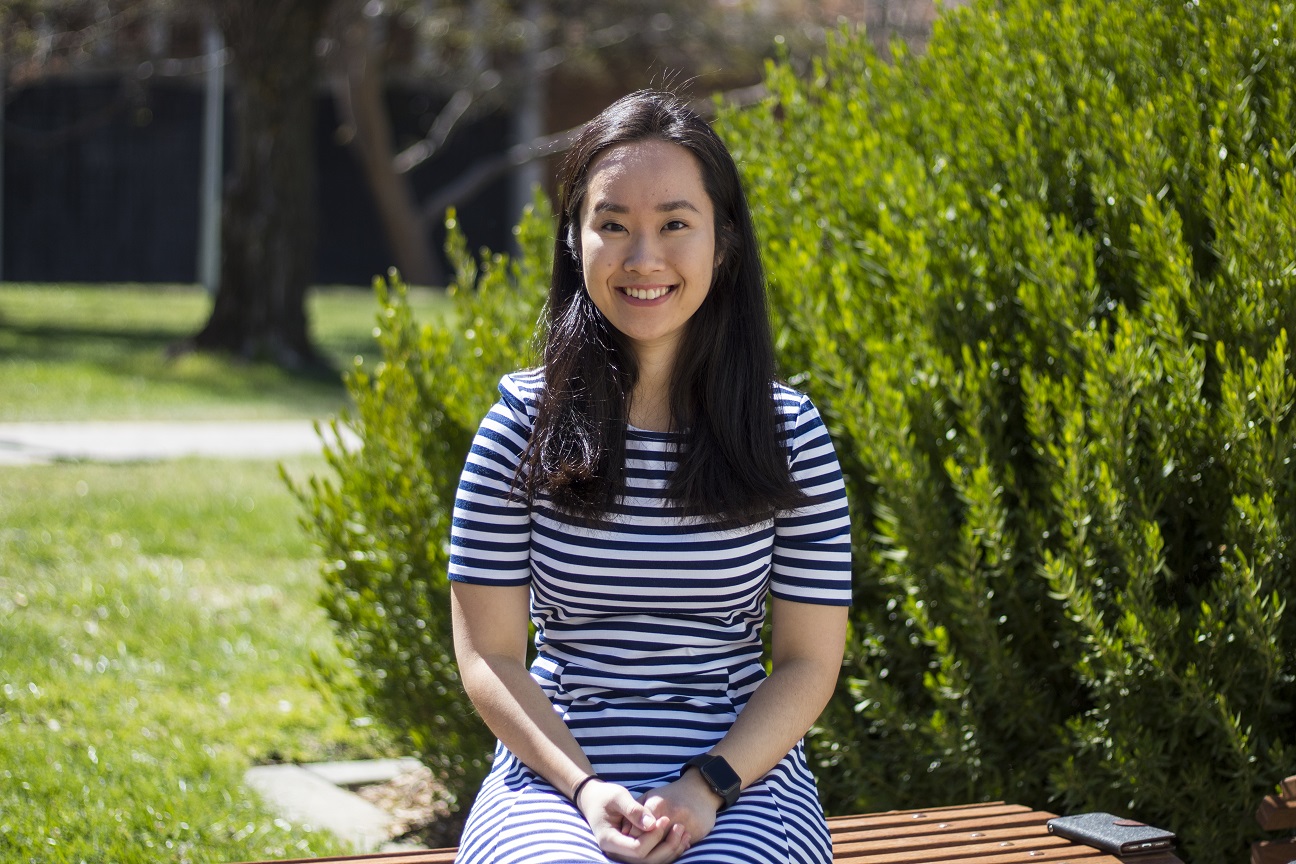Photonics scholarship lights the way
Three and a half decades have passed between Wanda Henry’s arrival at ANU as an undergraduate in Mathematics and Physics in 1981, and the arrival of Marika Niihori, now in her third year working toward a Bachelor of Philosophy (Honours) in science. Both came from Queensland.
The two women never met. All the same, they have a connection.
Wanda’s time at ANU was marked by academic success – noted through multiple awards and scholarships – as well as a busy life off-campus. She taught dance in community venues, became an Explainer for Questacon science exhibits, and tutored in mathematics.
Wanda’s honours project adopted a research focus upon optical communications. She began a long-term collaboration with Professor John Love, with whom she co-authored several papers in the following years. She completed her PhD at the Optical Sciences Centre at ANU in 1988.
From there Wanda took up a Postdoctoral Research position at the University of Arizona (1988-1989) and a Research Fellowship at Kings College at the University of Cambridge (1989-1993). While in Cambridge, her theoretical work expanded to include experimental work with optical fibres.
Wanda returned to Australia in 1993 to take up a lectureship at Latrobe University in Melbourne. Simultaneously she was a Visiting Fellow at ANU, maintaining ongoing research there in optical fibre sensing.
Tragically, Wanda was beset by health problems in 1996, and died unexpectedly in Melbourne in December, 1996. She was 34 years old. Her colleagues mourned not only her brilliance and excellence in her field, but her energy, enthusiasm and exuberance as a person.
From 1998 to 2012, her contributions at ANU were remembered through the Wanda Henry Prize, awarded to the top physics student who attended the Optical Communications course.
Since 2013, the Wanda Henry Scholarship in Photonics has been awarded to outstanding ANU undergraduates of physics and engineering to promote and assist their study of photonics.
Marika Niihori is the most recent recipient of the scholarship.
Marika studied physics in high school, and at ANU she discovered an interest in biology. Combining the disciplines has led her into projects in biophysics and neurophotonics.
As part of her degree, Marika has conducted research projects at the ANU Research School of Physics and Engineering, including modelling electromagnetic fields of neurons and a project on biosensors. She recently completed a neurophotonics project at the John Curtin School of Medical Research at ANU. She conducted neuronal imaging by electronically stimulating living neurons (rat brain cell cultures) to better understand their neuronal activity.
Marika says the scholarship’s emphasis on photonics has helped her focus her interest within biophysics, which relies heavily on photonics and optics. Ultimately, she hopes a future career in biophysics research can impact human lives through finding cures for stubborn diseases.
She’s aware of following Wanda Henry’s path in STEM. At one point she attended a biology class with mostly female students.
“I felt out of place, if that makes any sense. It just shows that I’ve become used to being in a male-dominated STEM field. I don’t think that’s a good thing at all.”
She addresses this issue as a member of the Fifty50 Society (which promotes equity in STEM) and by planning events about diversity in STEM in her capacity as vice-president of the ANU Physics Society.
Regarding the award of a scholarship in Wanda Henry’s name, she said, “I was empowered by the fact that there was a woman in 1988 who was able to graduate with a PhD in photonics. That resonated with me.”
Like Wanda, Marika balances her rigorous course-load and research with an active life in the Canberra community. She was last year’s president of the ANU Music Society, and plays violin in the National Capital Orchestra.
When Wanda Henry died, she was poised to continue to make significant contributions in the areas of optical communications, optical sensing and biophotonics. The aim of the scholarship is not only to continue Wanda’s work in applying the science of photonics, but honour the many facets of Wanda’s life.
Marika explained, “At the end of last year I had the opportunity to talk with the Henry family. I was very grateful and thankful, and I remember saying that I wanted to live up to Wanda Henry’s name. They told me not to worry about living up to her example or making her parents proud. They said they would rather help me achieve my best.”
If you’re interested in contributing to the Wanda Henry Scholarship in Photonics, or helping in other ways, write to science.advancement@ANU.edu.au or call Jock Gavel on 02 6125 8200.

